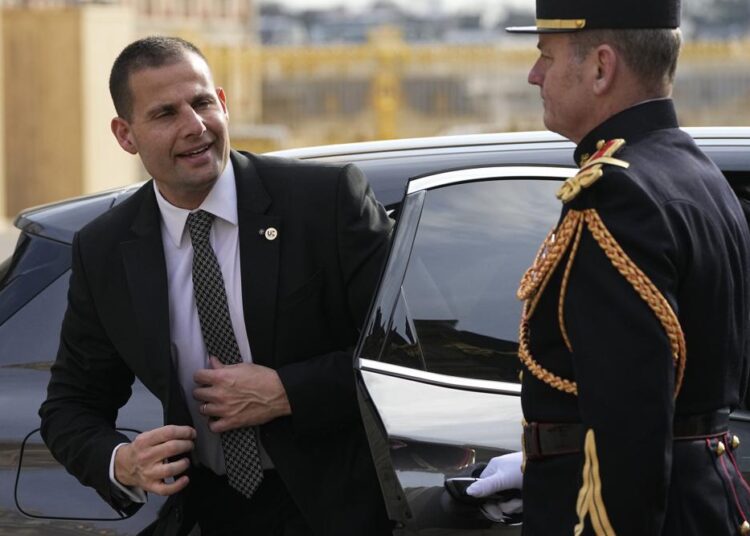VALLETTA — Maltese Prime Minister Robert Abela on Sunday claimed victory in his nation’s parliamentary election hours ahead of official results.
If the win is confirmed, that would mean the Labour Party will start its third consecutive term in office, beating out its traditional rival, the Nationalist Party. The election was held Saturday in the Mediterranean island nation of around 500,000 people that is a member of the European Union.
The actual vote count was expected to be completed and announced either later on Sunday or early Monday.
“Yesterday, the Maltese people decided that Malta should keep moving forward,″ Abela told reporters in a brief statement in the counting hall where the election results were being tallied.
Earlier, Abela told the Maltese state broadcaster: “We have a clear indication that the Labour Party will have an absolute majority.”
Labour had the lead in all public opinion polls before the balloting.
His rival for the premiership, Nationalist Party leader Bernard Grech posted a video comment on Facebook saying he had called Abela and conceded defeat.
Abela appealed for national unity and pledged that his government will work in the interest of all the people without distinction.
About 85% of eligible voters cast ballots. Normal turnout usually tops 90%.
Abela in January 2020 became prime minister after Joseph Muscat quit amid protests linked to the 2017 car bomb slaying of Maltese journalist Daphne Caruana Galizia, who investigated corruption and ties between business interests and politicians in Malta.
During the election campaign, the sale of Maltese citizenship to the wealthy came under fire in the campaign amid EU sanctions against Russian oligarchs in the wake of Russia’s invasion of Ukraine. The Nationalists called for the suspension of the sale of citizenship to Russian nationals. Earlier this month, Abela’s government did suspend the sale to both Russian and Belarussian nationals, saying that the existing due diligence checks can’t be carried out effectively in the current scenario of war.
Muscat had been under pressure to step down after the arrest of a prominent local businessman, Yorgen Fenech. An independent inquiry, published in July 2021, into the bombing found that the Maltese state had to “bear responsibility” for the journalist’s assassination due to the culture of impunity that emanated from the highest levels of government at the time.
As in much of southern Europe, high prices have been hurting energy consumers. The Maltese government is subsidizing energy costs to keep prices stable, and both parties in the campaign had pledges to continue the subsidies.
Abela’s government was generally seen as having successfully managed the Covid-19 pandemic, with a number of measures to support businesses and workers, keeping unemployment low.
But a move by the government to issue tax refund and stimulus checks to the public halfway through the campaign sparked controversy. Grech on Sunday decried the issuing of the checks, saying his political opponents sent the funds “to try and influence the electorate.”






Discussion about this post